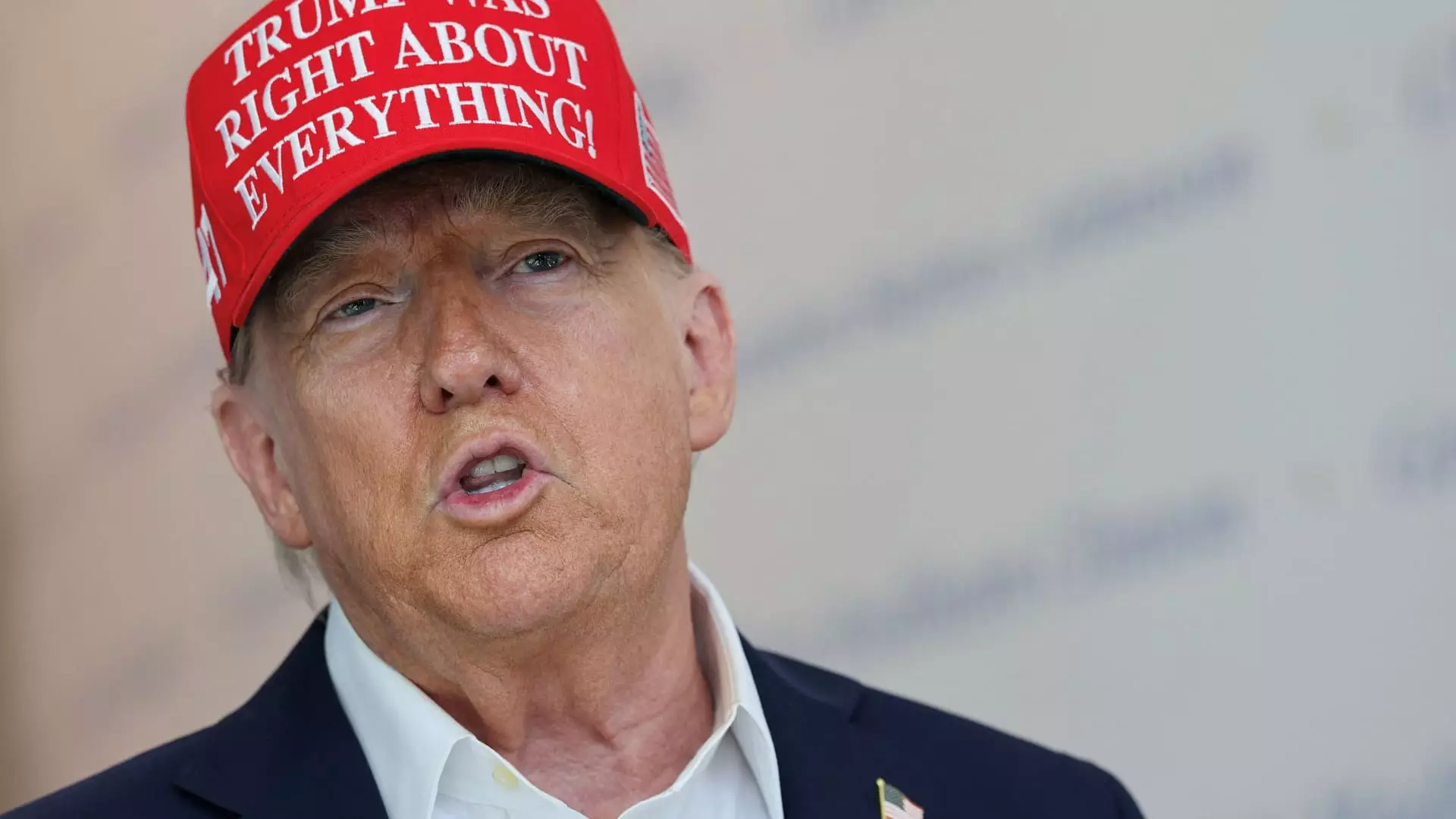In a bold and brazen display of political muscle, former President Donald Trump has issued an overt threat to Federal Reserve Governor Lisa Cook, signaling an unsettling trend toward wielding partisan influence over the central bank. His declaration—stating he would fire her unless she resigns—transcends mere personal animosity and threatens the delicate balance of independence that has long characterized the Federal Reserve’s role. Such interference endangers the credibility of American monetary policy, risking a future where political shifts, not economic fundamentals, dictate rate hikes or cuts. When the independence of the Fed is compromised, the entire economic system becomes vulnerable to unpredictable and potentially destabilizing decisions motivated by electoral calculus rather than data-driven policy.
The central concern here is that Trump’s threats serve as a volatile weapon rather than a legitimate exercise of oversight. Federal Reserve Governors are appointed for long terms precisely to insulate them from political pressures. The suggestion that they could be dismissed based on political disagreements or allegations—regardless of their merit—undermines the fabric of institutional independence. This kind of politicization threatens to turn a pillar of stability and expertise into a tool manipulated for short-term political gains. The precedent set could encourage future presidents to pressure or dismiss key appointees, sabotaging the Fed’s credibility and deepening partisan divides over economic governance.
Allegations as a Weapon: A Politicized Assault on Credibility
The specific circumstances surrounding Lisa Cook’s current predicament seem more rooted in politics than in substantive financial misconduct. The allegations from FHFA Director Bill Pulte involve mortgage fraud related to her primary residences—claims that she vehemently denies. Regardless of their truth, the timing and the context suggest a strategic attempt to tarnish her reputation and weaken her influence within the Federal Reserve. It appears that Cook, a Biden appointee, has become a convenient scapegoat for broader frustrations with economic policies, particularly in an era of rising inflation and economic uncertainty.
Interestingly, Cook has maintained alignment with the majority on monetary policy, not diverging from Powel’s stance on interest rates. This underscores the politicization: the issue is not her policy votes but her political position and identity. When political actors editorialize or threaten removal based on allegations that are still under investigation, the atmosphere of intimidation and uncertainty spreads. It sets a dangerous precedent, implying that policymakers must either bow to political pressure or face removal—an approach that could lead to impulsive decision-making and eroded trust in economic institutions.
The Broader Implication for Economic Stability and Governance
The attempt to remove Cook also reveals a troubling side effect: the potential reshaping of the Federal Reserve’s board with ideologically aligned appointees. If Trump successfully replaces her, he could tilt the balance of power, selecting members sympathetic to his economic views. Such strategic appointments could lead to a Federal Reserve that is less focused on objective economic data and more inclined to push for policies favoring certain political narratives.
This erosion of Objective Economic Governance risks fueling volatility. When monetary policy becomes a battleground for partisan influence, markets respond with uncertainty, and confidence in the system wanes. Moreover, the implications stretch beyond immediate economic variables; they threaten the independence and resilience of institutions designed to shield the economy from political swings and populist pressures. The broader danger is that what should be insulated, expert-driven policymaking degenerates into political theater, entirely dependent on who controls the executive branch at any given moment.
While advocates might argue that oversight and accountability are necessary, there is an essential distinction between legitimate questioning and overt threats of firing to serve political ends. The Fed’s role as an independent arbiter of monetary stability must be preserved; otherwise, it risks becoming another pawn in the perpetual political chess game. For a center-right liberal perspective, maintaining the independence of the Federal Reserve is crucial, not only for ensuring economic stability but also for safeguarding responsible governance that respects institutional boundaries. The politicization of such a vital institution represents a dangerous shift towards transactional policymaking, detrimental to long-term economic health and the rule of law.

